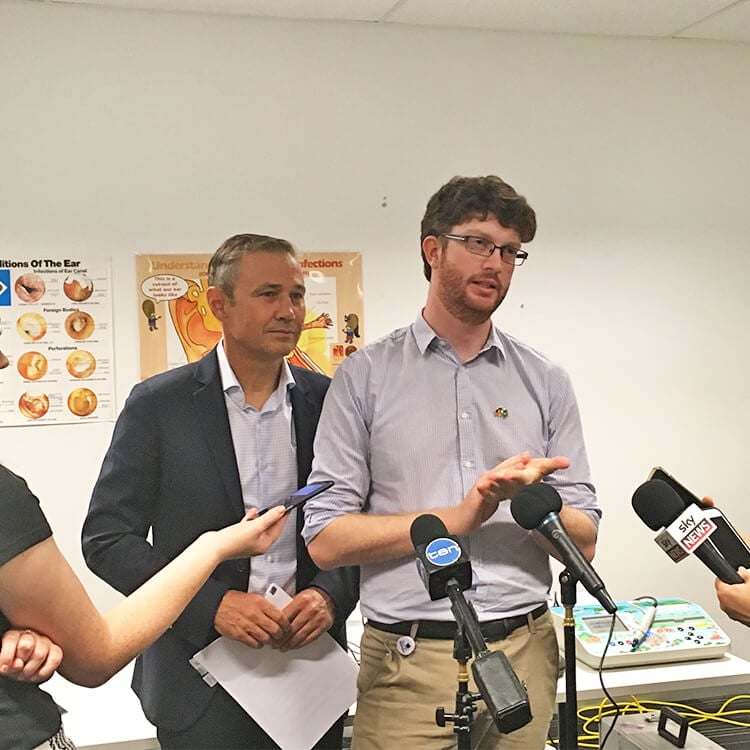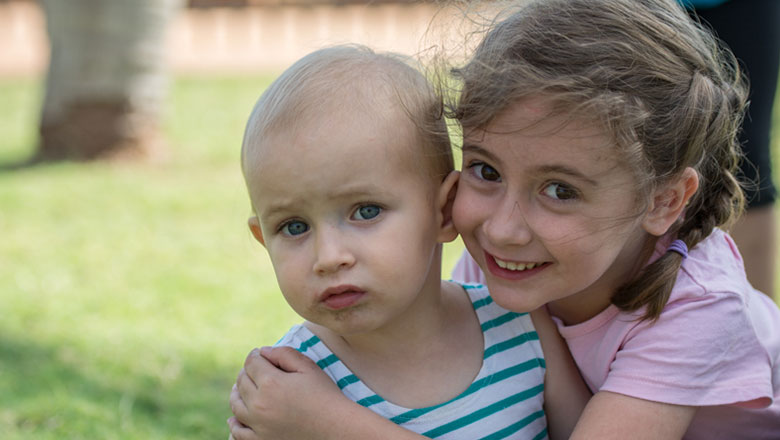Search

News & Events
Early ear infections linked to higher risk of future problems: studyResearchers have found kids who experience repeat ear infections in infancy have a much higher risk of ongoing problems with ear infections in later childhood

News & Events
New ear health study music to the ears of Aboriginal childrenWait times for Aboriginal children suffering ear infections could be reduced to less than four weeks thanks to a new The Kids Research Institute Australia research project

News & Events
Community Conversation- Infectious Diseases in ChildrenConsumers and community members are invited to join us to provide input into our childhood infectious diseases research.
Research
A systems biology approach to determining the risk for development of otitis mediaPeter Ruth Elke Richmond Thornton Seppanen MBBS MRCP(UK) FRACP PhD BSc PhD Head, Vaccine Trials Group Co-head, Bacterial Respiratory Infectious
Research
Children with secondary care episodes for otitis media have poor literacy and numeracy outcomes: A data linkage studyWe examined the association between otitis media and educational attainment in a retrospective population cohort of Western Australian children who participated in the Grade 3 National Assessment Program—Literacy and Numeracy in 2012.
Research
Common and Rare Genetic Variants That Could Contribute to Severe Otitis Media in an Australian Aboriginal PopulationOur goal was to identify genetic risk factors for severe otitis media (OM) in Aboriginal Australians.
Research
The reliability of video otoscopy recordings and still images in the asynchronous diagnosis of middle-ear diseaseTo compare the asynchronous assessment of video otoscopic still images to recordings by an audiologist and ear, nose and throat surgeon (ENT) for diagnostic reliability and agreement in identifying middle-ear disease.

News & Events
Warm Welcome for the Neonatal Infection and Immunity TeamClinical Professor Tobias Strunk, Dr Andrew Currie and their Neonatal Infection and Immunity Team have become the newest members of the Wesfarmers Centre of Vaccines and Infectious Diseases.
Research
Reflections on How Tinnitus Impacts the Lives of Children and AdolescentsThe aim of this study was to generate a conceptual framework describing which aspects of children and adolescents' lives are affected by chronic tinnitus.
Research
Unraveling the genetics of otitis media: From mouse to human and back againOtitis media (OM) is among the most common illnesses of early childhood, characterised by the presence of inflammation in the middle ear cavity...
